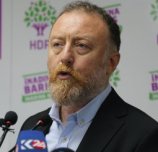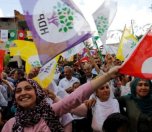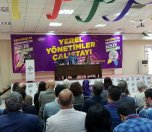EVRİM KEPENEK'S IMPRESSIONS
Politicians in a Race to 'Speak on Behalf of HDP Voters', but What do 'HDP Voters' Think?
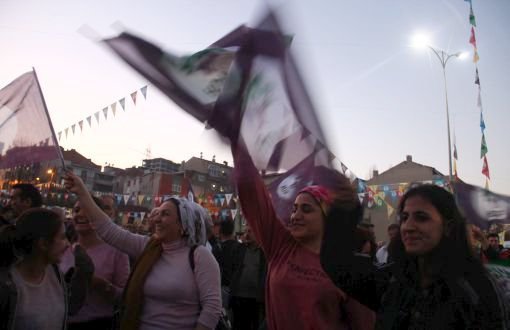
Click to read the article in Turkish
A new style has been spreading among the media of Turkey for a long time. Although drawing criticism from time to time, this style quickly makes an impact and gains acceptance.
The Peoples' Democratic Party (HDP) and its voters being talked about without their representation and only men talking about women's rights on screen are examples of this style in the mainstream media.
So, is the situation like this only on the media? Of course not. Ahead of the March 31 local elections, almost all the parties' representatives express their views on the "HDP voters," and "speaking on behalf of the HDP voters".
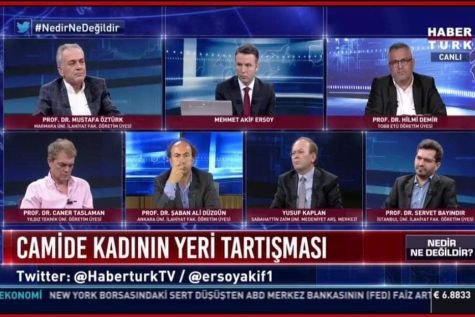 On the Habertürk TV, seven men talk about "the debate on the woman's place in the mosque."
On the Habertürk TV, seven men talk about "the debate on the woman's place in the mosque."
"I don't view them as terrorists, they should be rehabilitated"
Here are some examples from politicians' statements on the HDP voters:
Felicity Party (SP) Chair Temel Karamollaoğlu: "They should know this; we demand the HDP votes as much as Mr. ERdoğan. We have no difference." (February 27)
President and Justice and Development Party (AKP) Chair Recep Tayyip Erdoğan: Those HDP people began to make up something like, 'Erdoğan names those who vote for HDP as terrorists.' I didn't utter such an expression. But as those who are at the helm [of the party], you are terrorists." (March 6)
Main opposition Republican People's Party's (CHP) mayoral candidate for the Metropolitan Municipality of Ankara, Mansur Yavaş: "I don't view the HDP people as terrorists. I think the HDP people should be rehabilitated. I think that instead of viewing the all HDP people as terrorists, it is needed to save some of them from the claw of the PKK (Kurdistan Workers' Party).
"We have always been here"
.jpg)
Politicians state their views on the HDP voters, demand their votes. Good, but what do the HDP voters think about those statements?
To find an answer, I was at the party's Co-Chair Pervin Buldan's meeting with the people in Bağcılar (İstanbul). With the enthusiasm of women and children never diminishing, the event had the atmosphere of a rally.
We discussed with women who tried to answer my questions without caring about the loud music.
One woman, criticizing Yavaş's words about "rehabilitation," says, "We didn't come to this society from the sky or a tree hollow. We have always been here. We are part of these streets, these neighborhoods."
"They don't respect our choices"
It seems that the statements that say the HDP people "should be rehabilitated to the society" or view them as "terrorists" are the ones that piss off the HDP voters.
"If we are not terrorists, how can those whom we vote for be? This is our choice. We don't call those who vote for other parties 'terrorists'. And they shouldn't call us 'terrorists'. They don't respect our choices, they appoint trustees to our municipalities. Then they call us 'terrorists'. They say 'Let's rehabilitate them to the society'. We are already in the society.
"My teacher called me a terrorist"
.jpg)
Meanwhile, a child comes to us and tells us, "My friends called me a terrorist at school. My teacher also called me a terrorist. I didn't go to school."
When I ask his mother about what he told, she confirms. They complained the teacher to the Directorate of National Education and the teacher was appointed to another school, she says.
"These expressions hurt our children the most. They refrain from going to school. My son began going to school again after his teacher went to another school."
"They don't even understand our pain"
I try to interview almost every woman I see. Although I ask them about the politicians' statements, the topic somehow comes to Zülküf Gezen, an inmate who ended his life at the Tekirdağ Prison.
One woman says, "Those who don't even understand our pain call us terrorists. This is our choice, why don't they accept this?"
I come across a group of young women. My questions sometimes make them laugh. They say they are not laughing at my questions but the statements the politicians utter. They say they do not take them seriously and underpin the HDP voters' determiner role in the elections.
"Never mind their expressions. They said what they said. We don't follow them. As the saying goes, 'Look at the word and look at who said that'. Our situation is like this. All of them need our votes as you see." (EMK/VK)
Preliminary probe into police violence during İmamoğlu protests
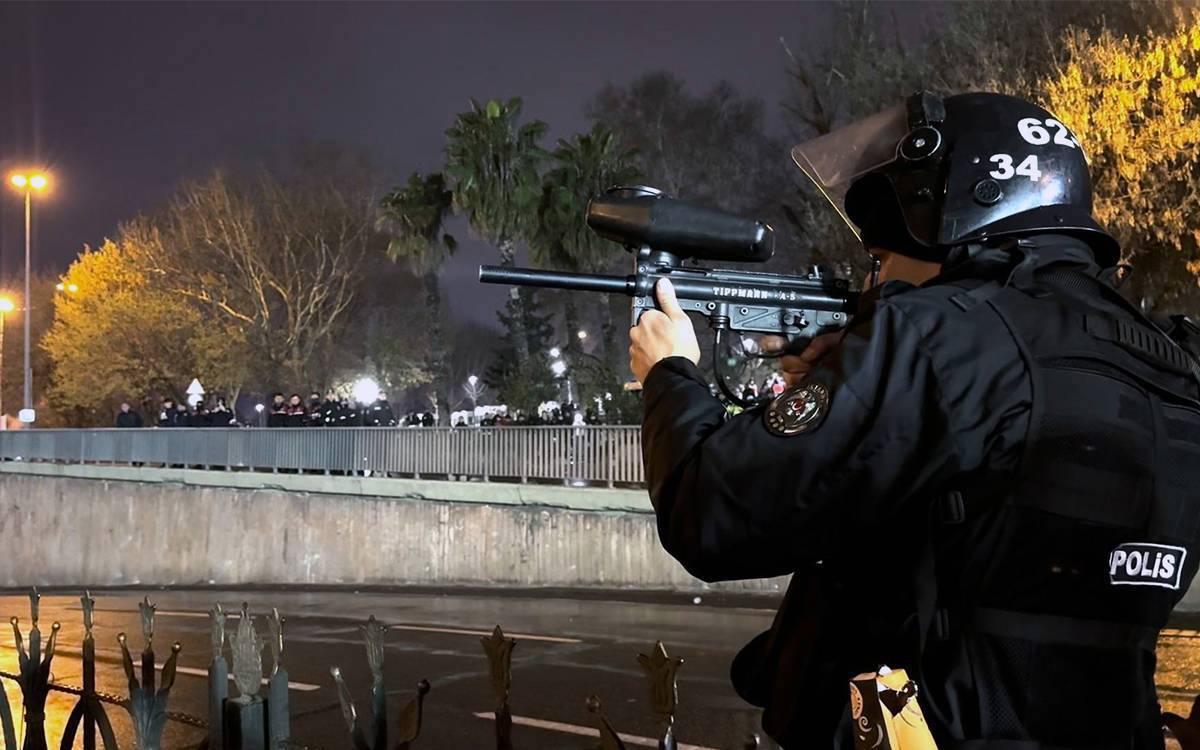
Astrologist released after two months in detention over social media post on Bahçeli’s health
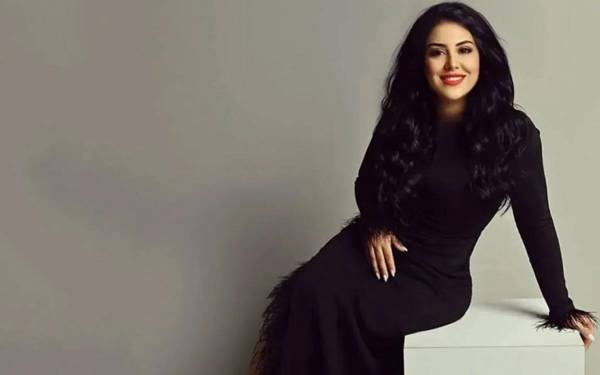
Over 100 youths released after mass arrests during İmamoğlu protests
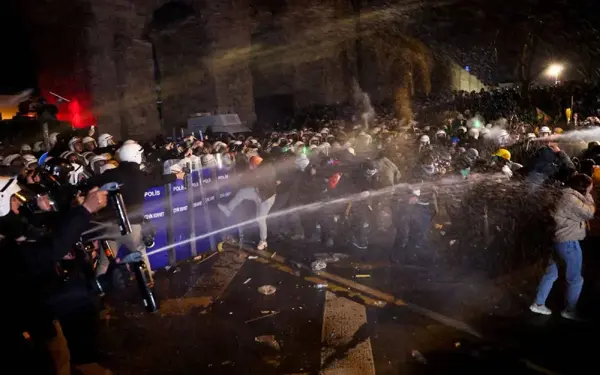
MALE VIOLENCE MONITORING REPORT MARCH 2025
Men killed 24 women in March
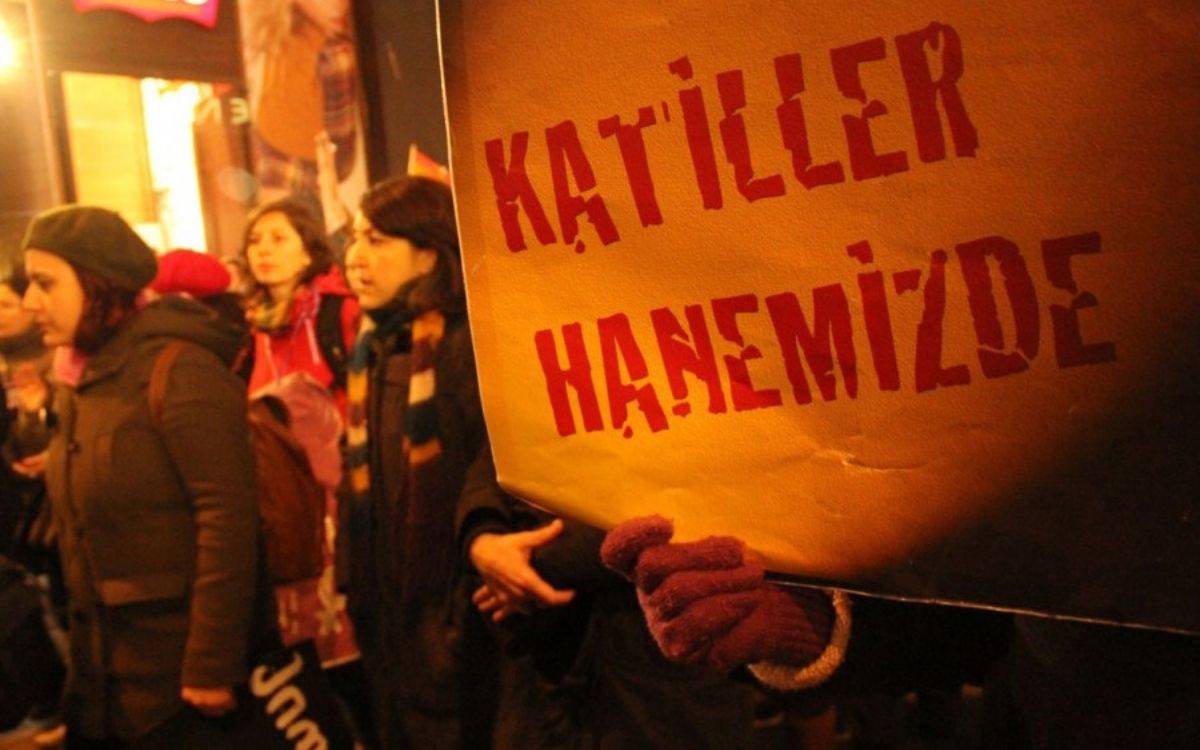
Woman alleges sexual harassment by police during İstanbul protest detention
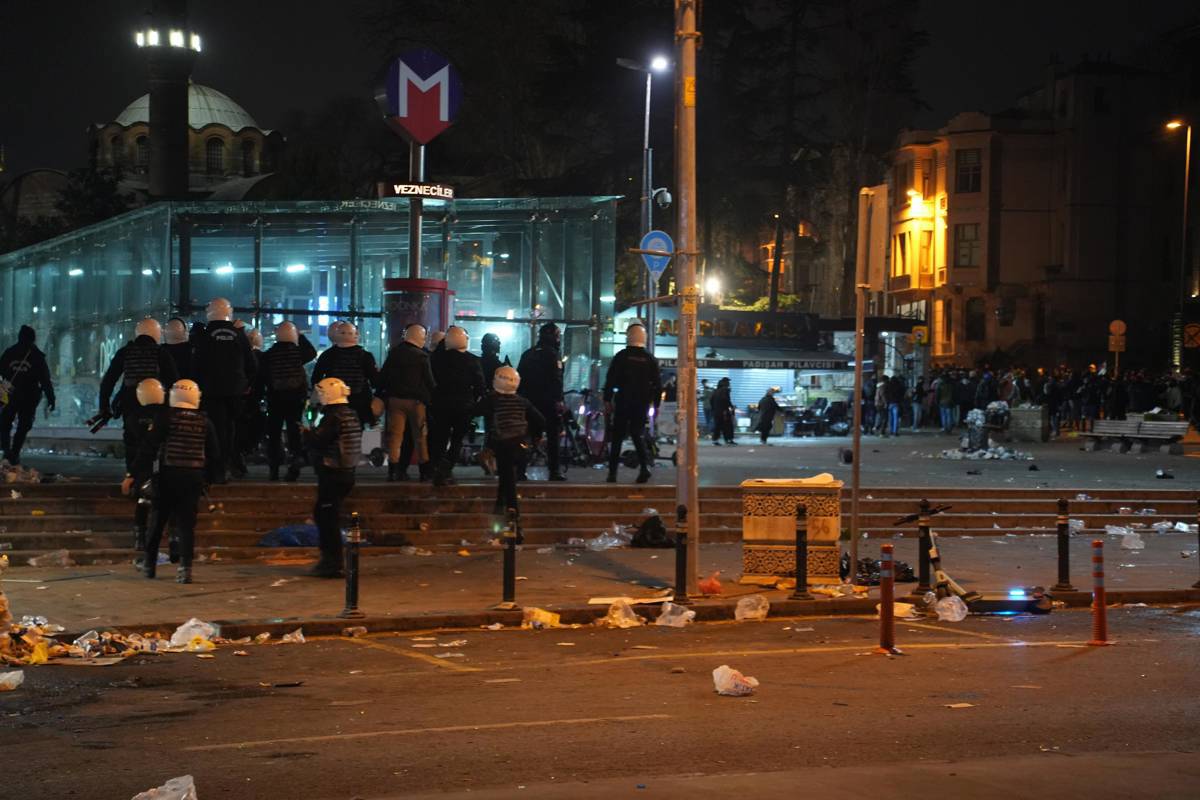





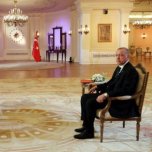
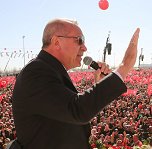
a.jpg)
